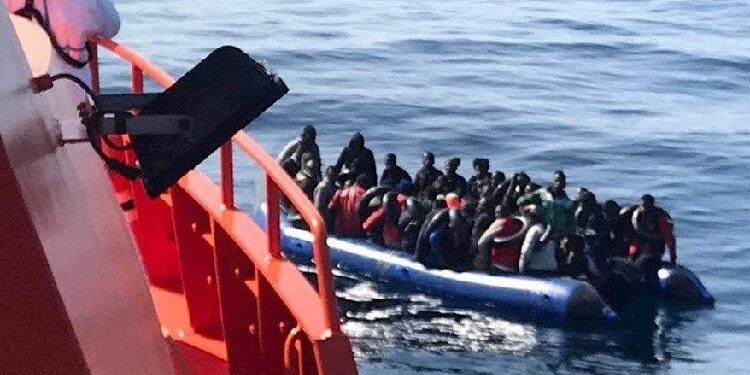The Diplomat
The President of the Canary Islands, Fernando Clavijo, has told the acting Minister of Foreign Affairs, José Manuel Albares, of the need for the European Union (EU) to keep negotiations open with Senegal to accept repatriation flights for people who, after reaching the Spanish coast, have not been able to regularise their situation.
“We know that, faced with the threat of a sanction from the EU, Senegal has accepted two repatriation flights for migrants in recent months, but everything suggests that they are going to resist new flights,” Clavijo said during a telephone conversation with Albares on Wednesday afternoon, according to a press release from the Canary Islands government.
The president of the Canary Islands showed Albares the “growing concern” of the Canary Islands’ public administrations about the “evident risk” that the social, political and economic “instability” in Senegal could lead to an increase in the departure of canoes with migrants trying to reach the coasts of the archipelago.
He added that Senegal is currently suffering “a climate of uncertainty and social unrest that has led to the reactivation” of the Canary Island route of the canoes, which is why he has called for more commitment from the Spanish Government and the EU, because this scenario, which has been “complicated” by the commodity price crisis suffered by African countries, has been agitated in recent weeks after the President of Senegal, Macky Sall, refused to stand for re-election in the 2024 elections.
This, Clavijo said, means that the Senegalese government “does not” have the possibility of controlling the departure of migrants from its coast, alluding to the fact that several observers on the ground have warned that the “Senegalese authorities are, in a way, not monitoring the departure of canoes because clandestine journeys are a way of easing social tension” in the streets of the capital, Dakar, as well as in the country’s main cities.
“Although the Senegalese authorities do not officially recognise it, these departures of boats with migrants, mostly young people, are a relief for the social pressure in the country”, Clavijo pointed out in his conversation with Albares, in which he also discussed the reception needs on the islands, reports Europa Press.
The president of the Canary Islands took advantage of the telephone conversation with the acting minister to complain about “the lack” of any foresight on the part of the Spanish government in the face of the “more than foreseeable” arrival of irregular boats this summer “taking advantage of the good” sea conditions.
For this reason, Clavijo asked for “real and truthful information” regarding the preparatory work for a reception network that “prevents situations like the collapse” at the Arguineguín dock in Mogán (Gran Canaria), where some “2,000 migrants were detained by the security forces at the end of 2020”, from happening again.
“We don’t want to have to suffer something like that again, but the reality is that we don’t know whether the Spanish government is now negotiating with Senegal to increase the number of patrol boats on its coast to make it more difficult, if not impossible, for canoes to leave,” he said.
Morocco was another of the points discussed in the conversation, and the President of the Canary Islands explained to Albares the need for the central and regional governments to “analyse the evolution of the agreements signed at the time” with the neighbouring country, as well as the “role reserved” for the archipelago in the bilateral commissions with Morocco.
Clavijo added that, as a border area with Africa, and as an outermost region (OR) of the EU, the Canary Islands “need to know the real scope” of the agreements that the Spanish Government has reached with Morocco, while stressing the “importance” for the islands of direct participation in meetings between the two countries when they have a special impact on the islands.
Finally, Clavijo and Albares analysed the “role” of the Canary Islands in the six months of the Spanish Presidency of the European Union (EU) and discussed the preparations for the meeting on regional integration in the outermost regions, scheduled for 21 September in the Canary Islands; the visit, on 5 and 6 October, of the Council working group to study Structural Actions and the outermost regions; and the Conference of Presidents of the outermost regions scheduled for 9 and 10 November with the ministerial meeting of the governments of Spain, France and Portugal.






